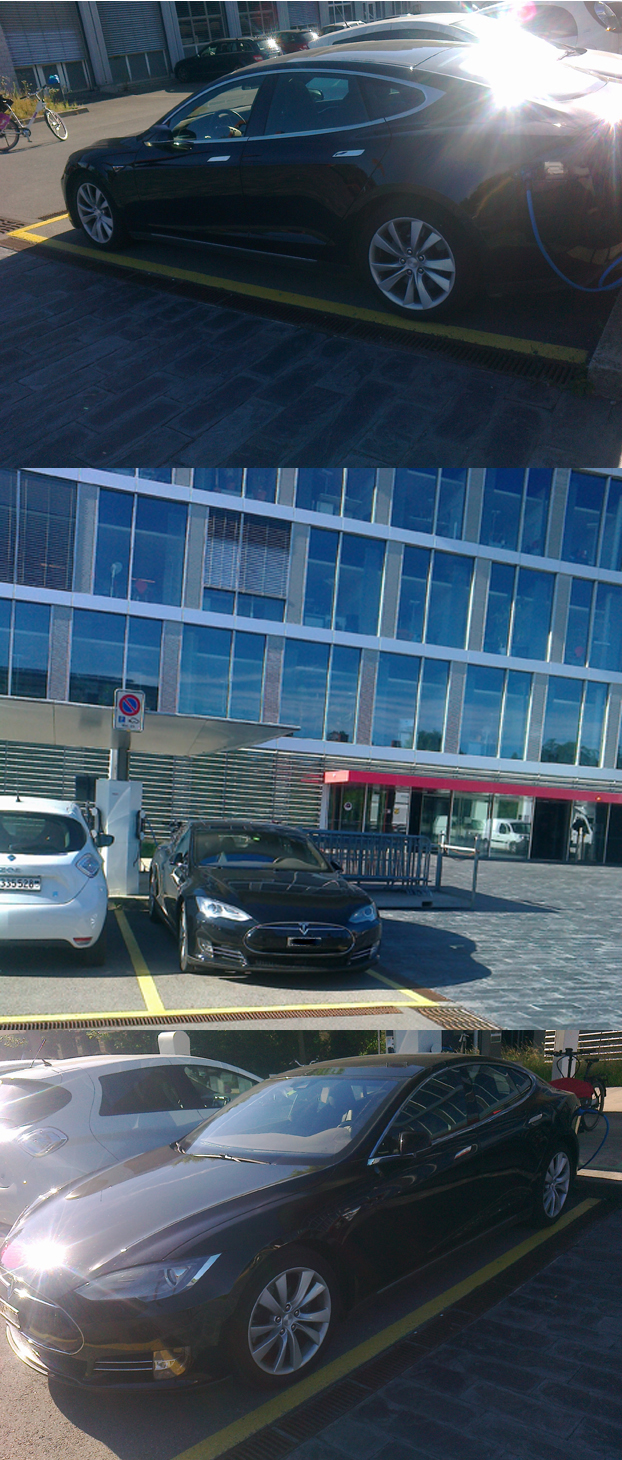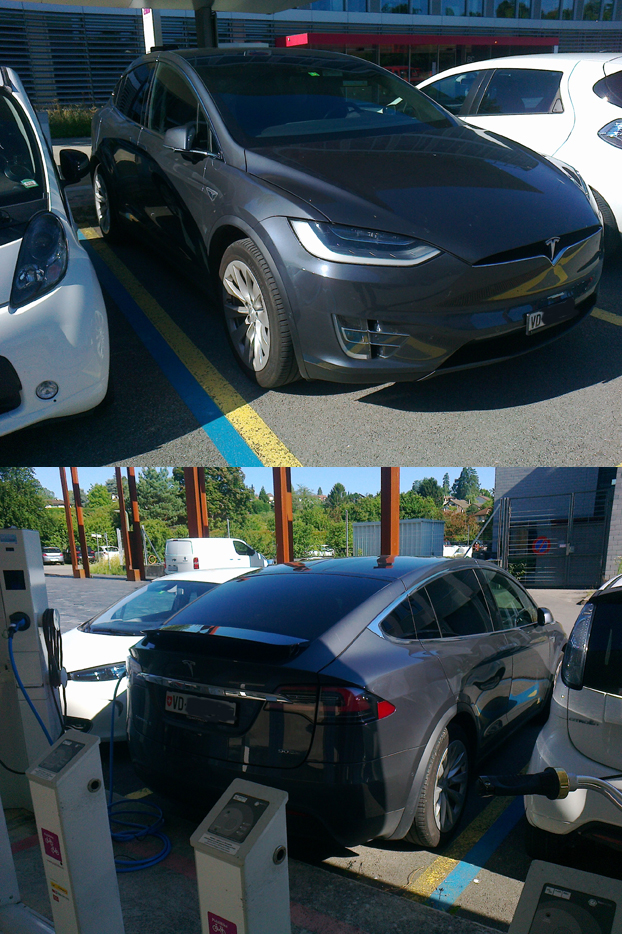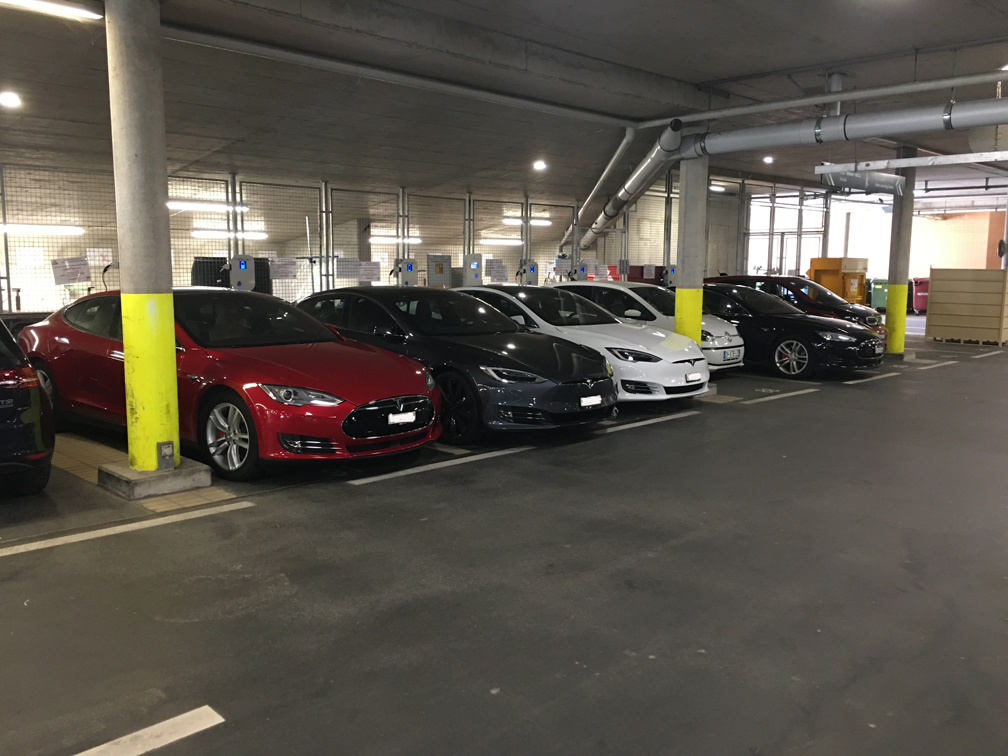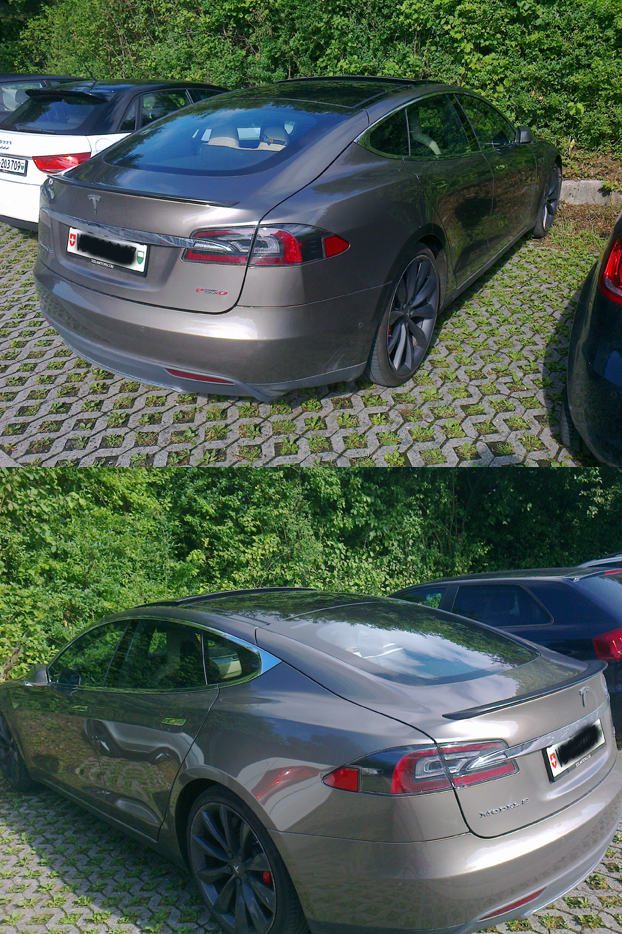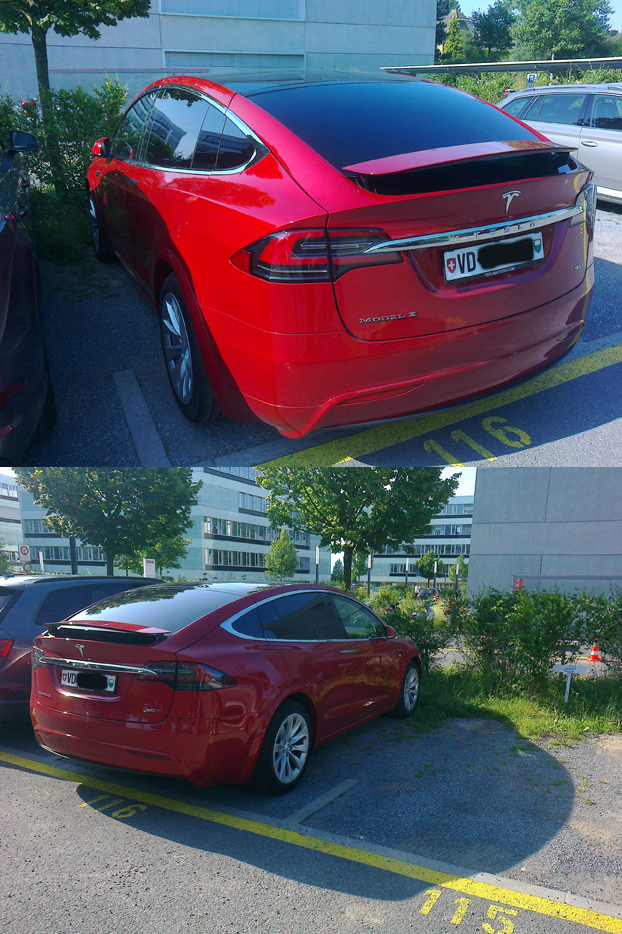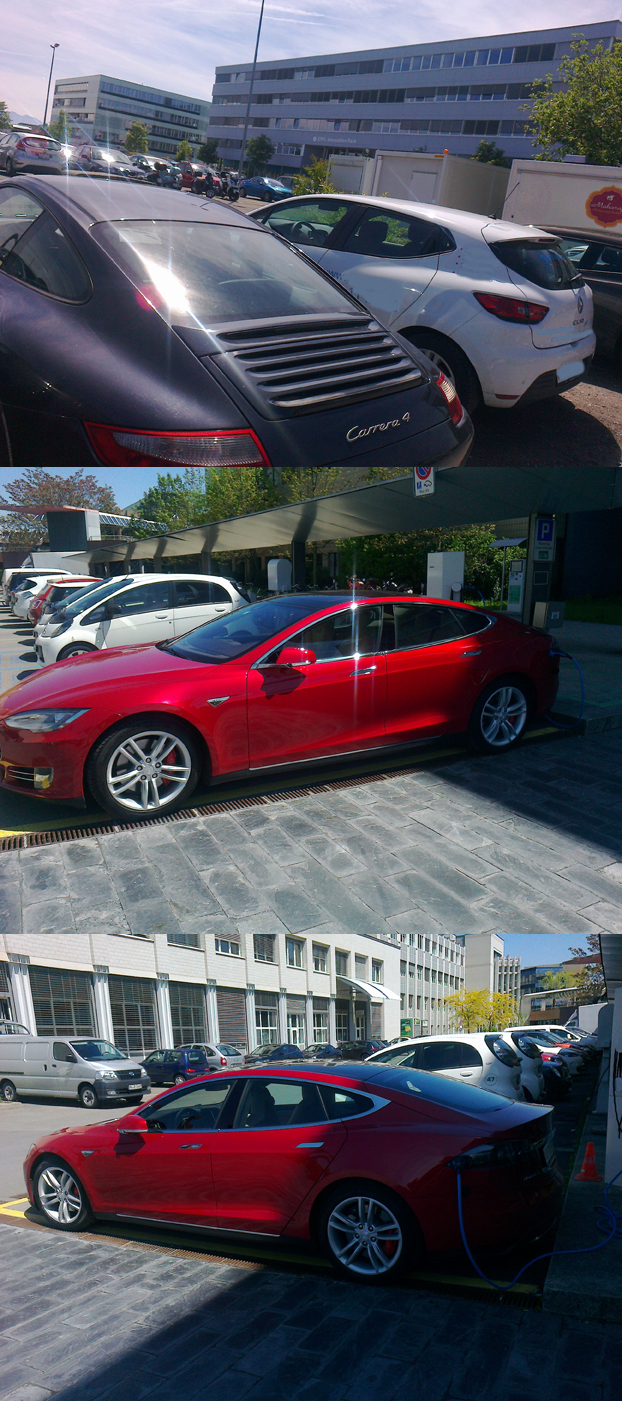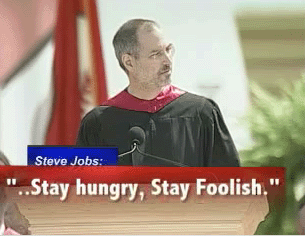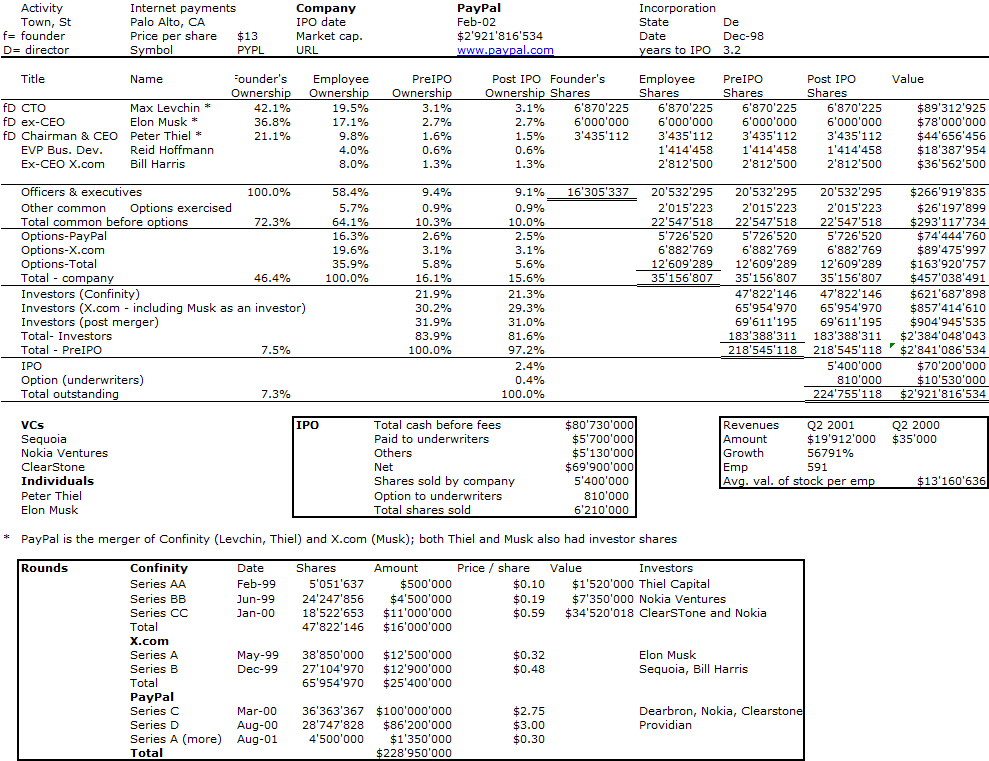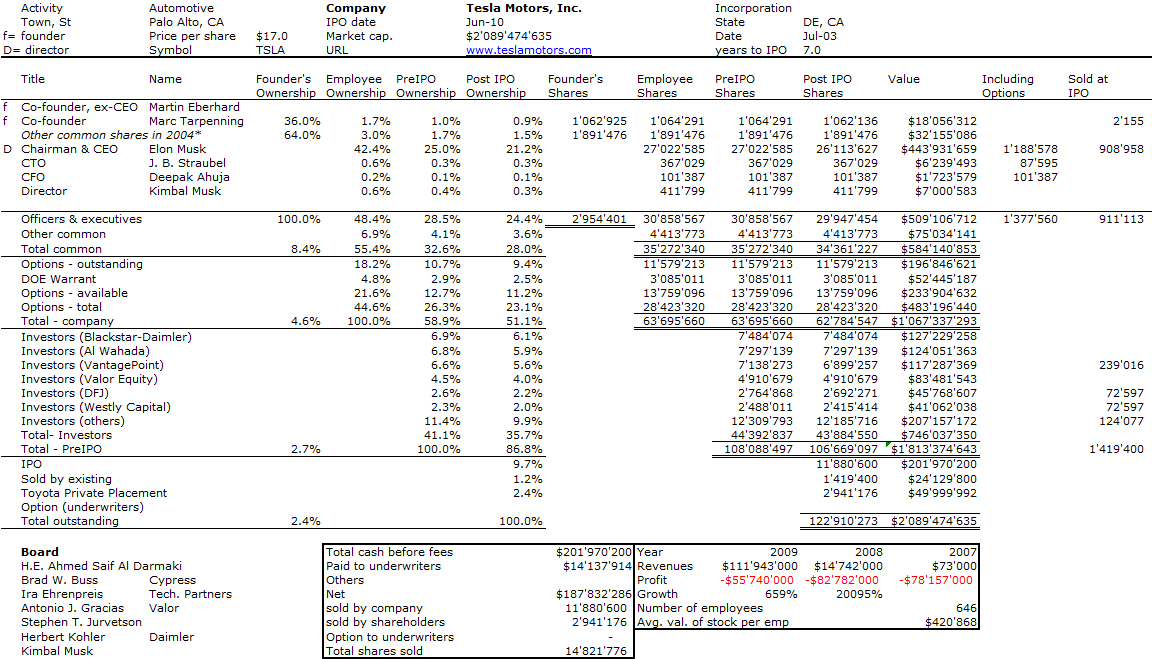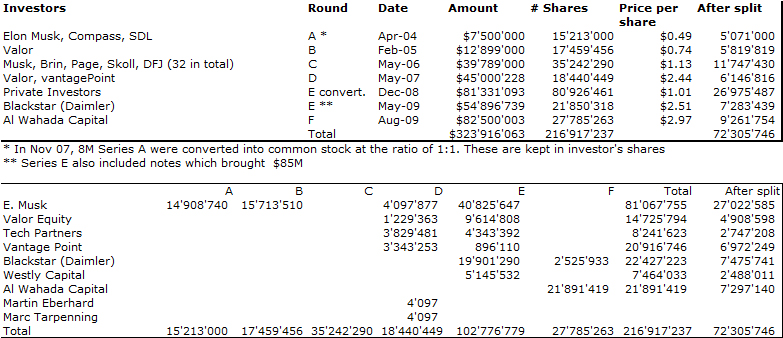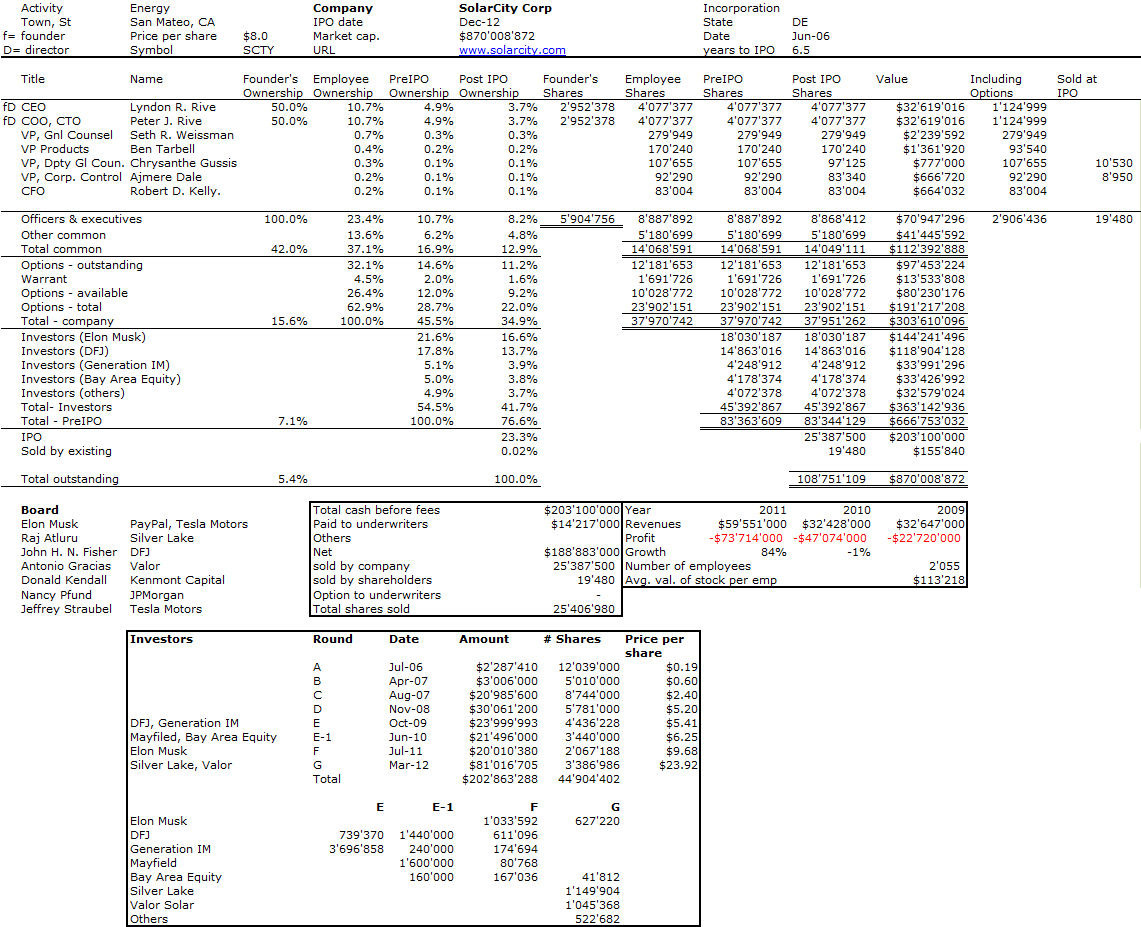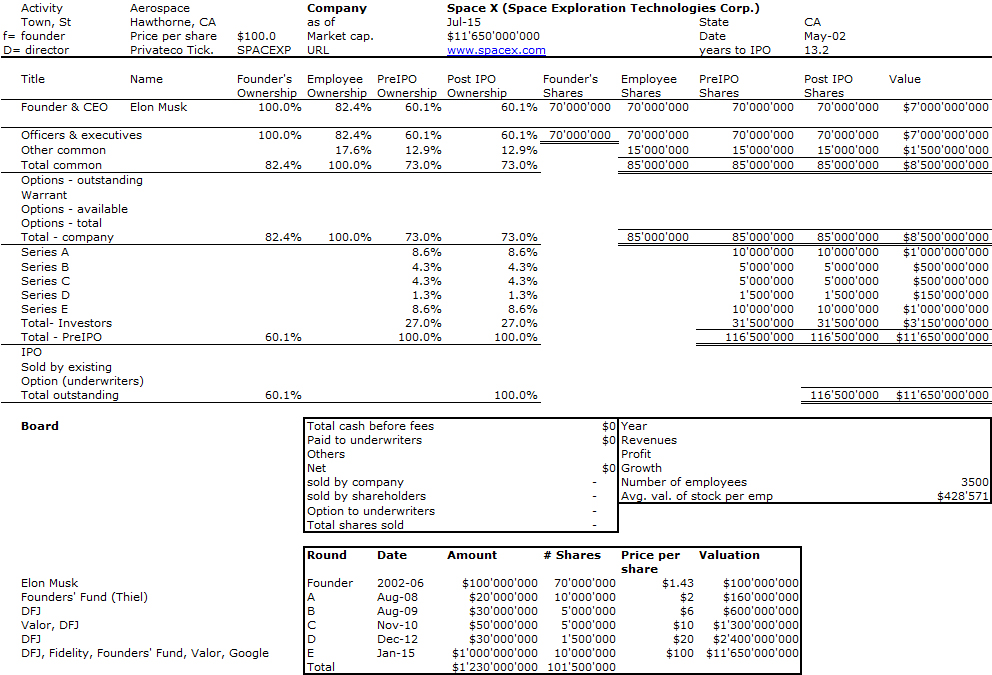Elon Musk is probably the new Steve Jobs. He might be much more even. His early life, his private life has not been simple and easy. He is probably as tough with a similar distorted perception of reality as the Apple hero. But as an entrepreneur, he may have a broader vision and ambition. He began small and simple with Zip2, an early Internet yellow pages start-up, which he still sold for $307M, followed by X.com which had the ambition to change the banking system before it merged with Confinity to become Paypal. Both were just experiments! He learnt and developed his “grandes oeuvres”: Tesla and SpaceX.
Ashlee Vance has just written a remarkable and fascinating book Elon Musk, Tesla, SpaceX, and the Quest for A Fantastic Future about his life and achievements.
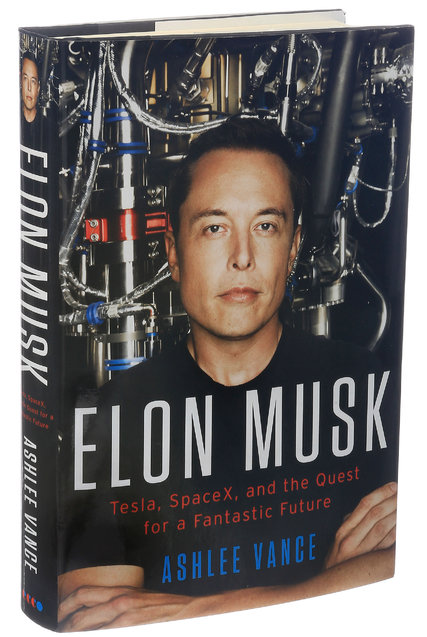
Zip2 – 1995 – 3 co-founders (Elon and Kimbal Musk, Greg Kouri) $3M with MDV – sold to Compaq / AltaVista for $307M on April 1, 1999 after more than $50M additional funding. Elon made $22M, Kimbal $15M, MDV 22x its money.
X.com – 1999 – 4 co-founders (Ed Ho, Harris Fricker, Christopher Payne, Elon Musk) and early employee, Scott Anderson. Bill Harris, CEO in Dec. 99. Merges with Confinity in March 2000. Musk netted $250M from the sale to eBay or $180M after taxes.
All told, Musk invested $12M into X.com, leaving him, after taxes, with $4M or so for personal use. “That’s part of what separates Elon from mere mortals,” said Ed Ho, the former Zip2 executive, who went to cofound X.com. “He’s willing to take an insane amount of personal risk. When you do a deal like that, it either pays off or you end up in a bus shelter somewhere.” [Page 80]
Musk was replaced as CEO while on honeymoon. But when it became clear that the company had already moved on, Musk relented. “I talked to Moritz [from Sequoia] and a few others,” Musk said. “It wasn’t so much that I wanted to be CEO but more like ‘Hey, I think there are some pretty important things that need to happen, and if I’m not CEO, I’m not sure they are going to happen.’ But then I talked to Max [Levchin] and Peter [Thiel], and it seemed they would make these things happen. So then, I mean, it’s not the end of the world. […] Throughout this ordeal, however, he showed incredible restraint. He embraced the role of being an advisor to the company and kept investing in it, increasing his take as PayPal’s largest shareholder. “You would expect someone in Elon’s position to be bitter and vindictive, but he wasn’t”, said Botha [from Sequoia], “He supported Peter. He was a prince.” [Pages 88-89]
Musk is direct and tough but “He comes from the school of thought in the public relations world that you let no inaccuracy go uncorrected” [page 91]. An example of toughness in his private life: “He was constantly remarking on the ways he found me lacking. ‘I am your wife,’ I told him repeatedly, ‘not your employee’. ‘If you were my employee,’ he said just as often, ‘I would fire you.’” [Page 94]. He married and divorced 3 times, first with Justine Wilson, with whom Musk had 1 baby who died after 10 weeks, then 2 twins, then 3 triplets, then twice with Talulah Riley.
Chapters 6 and 7 are a MUST READ. They show the drive, craziness, vision, obsession that Musk put into building rockets and electric cars, combining the chaos of start-ups and the structure needed for manufacturing.
SpaceX – Space Exploration Technologies Corp. – 2002 – https://en.wikipedia.org/wiki/SpaceX. The [PayPal] deal gave Musk some liquidity and supplied him with more than $100M to throw at SpaceX.
Tesla Motors – founded on July 1st 2003 by Martin Eberhard and Marc Tarpenning who had sold a previous start-ups for $187M in 2000. In parallel Musk helped J. B. Straubel, a passionate Stanford student, who had seen batteries had reached efficiency possibly useful to electric cars. Musk invested $6.5M in Tesla and Straubel joined in May 2004. On January 27, 2005, the 18 Tesla employees had built the first prototype. Musk invested another $9M in a $13M round. In May 2006 Tesla had 100 employees. Musk invested another $12M together with DFJ, Larry Page, Sergey Brin and others for a new $40M round. In the middle of 2007, tesla had grown to 260 employees. [page 165]
There is an interesting section about Detroit and how different its culture is from Silicon Valley [Page 164¡: Every time Tesla interacted with Detroit it received a reminder of how the once-great city had been separated from its own can-do culture. Tesla tried to lease a small office in Detroit. The costs were incredibly low compared with Space in Silicon Valley, but the city’s bureaucracy made getting just a basic office an ordeal. The building’s owner wanted to see seven years of audited financial from Tesla, which was still a private company. Then the building owner wanted two years’ worth of advanced rent. Tesla had about $50 million in the bank and could have bought the building outright. “In Silicon Valley, you say you’re backed by a venture capitalist, and that’s the end of the negotiation.” Tarpenning said. “But everything was like that in Detroit. We’d get FedEx boxes, and they couldn’t even decide who should sign for the packages”.
Then fights began between Musk and Eberhard: The engineers credited Eberhard with making quick, crisp decisions. […] Musk wanted changes that started to delay the Roadster, Musk kept pushing the car to be more comfortable. […] Eberhard groused that these features were slowing the company down. […] The company as a whole was sympathetic to Martin [Page 165]. Many issues began to appear, technical problems such as the transmission, overall costs issues and finally delays in delivering the Roadster to customers who had prepaid for it.
In August 2007, Tesla’s board demoted Eberhard to president of technology. Most of the employees were tired; Tesla was running out of money after $140M spent. In the meantime, SpaceX failed with its first two rocked launches. And musk filed for divorce. When the 2008 crisis burst out, Musk was in personal and business troubles with his two companies.
More to come if I love as chapters 8-11.
PS – a short reminder about previous posts about Elon Musk:
– June 3, 2010: What makes a good technology company? A mastery of fear and envy.
– March 8, 2010: Tesla Motors and Paypal, a tale of two founders
